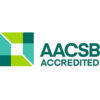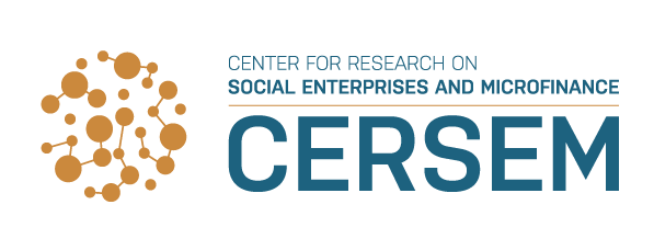Dear Colleagues,
Do you know of anyone interested in getting a PhD while researching Savings Groups? We are searching for two highly motivated and talented candidates for PhD studies.
Please share widely the call below.
CALL FOR PhD APPLICATIONS
Are you interested in doing a PhD on Savings Groups? Savings groups are bottom of the pyramid banking systems that allow members access to basic savings and credit services by conducting financial transactions among themselves. Around 20 persons are organized into a group where they mobilize their own regular savings and distribute these as loans to selected members as decided by the group. Several of the major international NGOs are active in mobilizing savings groups as they have proven to be efficient systems for simple banking services while at the same time they serve as generators of social capital for the members. Typically groups are trained, supervised and monitored for around one year and thereafter the groups are graduated and left alone.
Research on savings groups is still in its infancy. Particularly two areas need more research: 1) What happens with savings groups after they graduate and are left on their own? And 2) What is the situation for disabled persons participating in savings groups? We now search for two PhD candidates to cover these two areas.
Option 1: What happens with savings groups after they graduate? Do they survive? Do they expand? Do they change their membership and/or their savings and borrowing conditions? Do they initiate other operations? Do they become civil society organizations? To answer these and many similar questions we are partnering with the Norwegian international NGO Strømme Foundation who will sponsor the study together with the University of Agder. With the help of our local partners in West Africa, we will track graduated groups and find out whether they are still operating, how they are performing and what activities they are currently doing. We will also have the chance to compare performance data from the initial year with current data. Further details need to be worked out. Thus, your initial task is to develop a research proposal within this framework. Considering existing literature on savings groups we would like you to answer the following questions (plus other you find relevant) in your proposal: “What type of research questions could be interesting” and “what type of data do you suggest that we collect”? “How will you position the research in the literature” and “what type of research methodology do you consider should be applied”? These are questions we want you to address in the research proposal, which is a mandatory part of the application documents (see below). Since the research will take place in West Africa fluency in French is required.
Option 2: Disabled persons typically struggle in being integrated in social networks, including savings groups. For several years the National Union of Disabled Persons in Uganda (NUDIPU) in partnership with the Norwegian Association of the Disabled (NAD) have managed a successful project called iSAVE. In this project disabled persons are mobilized in savings groups. Today, iSAVE has around 50 thousand members whereof 30 thousand are disabled. The model is that savings groups are mobilized, trained and supervised for around one year. Thereafter the groups are graduated and left alone, though they are still part of the “NUDIPU umbrella”. The aim of this research project is to learn more about the effectiveness of iSAVE; whether members find participating in the groups useful; whether the group members experience improvement of life quality; and whether the iSAVE model is well designed. Further details need to be made out. Thus, your initial task is to make up a research proposal within this framework. Considering existing literature on savings groups: “What kind of research questions could be interesting” and “what kind of data do you suggest that we collect”? “How will you position the research in the literature” and “what kind of research methodology do you consider should be applied”? These are questions we want you to address in the research proposal, which is a mandatory part of application documents (see below). The research will take place in Uganda and will be carried out in partnership with NUDIPU and NAD who is sponsoring the project together with the University of Agder.
If you need to know more about savings groups, you can start by reading this report: https://www.researchgate.net/publication/333238735_Global_Indicators_of_Savings_Groups
To carry out the research, we are searching for two highly motivated and talented persons interested in doing a PhD in Norway. All university costs will be waived and each candidate will receive a scholarship of around EURO 1000,- per month to cover living costs. To qualify for this PhD opportunity you need to have a master’s degree (5 years of university (300 ECTS), including a master thesis) in a business school field. Preferably the education should be from an internationally recognized university. Further, you need to be fluent in English (plus French for option 1) and have advanced knowledge in Econometrics.
If you possess these qualifications we would very much like to receive you application.
The application should be e-mailed to roy.mersland@uia.no and should contain the following:
- Educational certificates with grades and transcripts
- summary of the master’s thesis (max one page)
- minimum two letters with academic references
- complete list of scientific publications (if you have published in peer-reviewed journals already)
- up to three scientific publications in international peer-reviewed journals in full text (this is not a requirement but only if you have published some articles already)
- other important documentation like results from tests like GMAT/GRE/TOEFL etc. (if you possess such already)
- motivation/application letter including whether you prefer option 1 or option 2 (max one page)
- Research proposal for the selected option with a maximum length of five pages, plus the reference list. The outline should present and discuss possible research questions, the relevance of the research, theory perspectives, positioning in the literature, data you suggest to be collected and relevant methods you suggest to apply. It is expected that the method suggested should, if possible, go beyond traditional simple surveys and be of a type that at least to some degree takes endogeneity into account.
The School of Business and Law at the University of Agder is a high-grade AACSB -accredited business school in Norway. Our PhD programme is one of Europe’s leading programmes in the field of International Business. We offer our candidates generous opportunities and equip them with a global mindset and modern research skills. Our graduates find prestigious jobs within and outside academia and they publish in high ranked international journals. The programme includes around 50 candidates from across the globe working closely with their highly motivated supervisors. The PhD process is designed to take three years. We have one of Europe’s best track records when it comes to finishing a PhD on time.
The selected candidates will become part of the CERSEM research team – https://cersem.uia.no/ – which is one of Europe’s leading research centers in the field of microfinance. In CERSEM you will be part of a team of around eight researchers actively involved in research on savings groups. In addition, the CERSEM team on savings groups works closely with a similar research group at KU Leuven University in Belgium where you will stay during part of your PhD process.
Your application should be sent by the 31st of March. Thereafter we will carry out a selection process. Start-up of the PhD is planned to be in September.
Best wishes,
Roy Mersland
Professor/Director PhD program
Director Center for Research on Social Enterprises and Microfinance (CERSEM)
School of Business and Law
University of Agder


